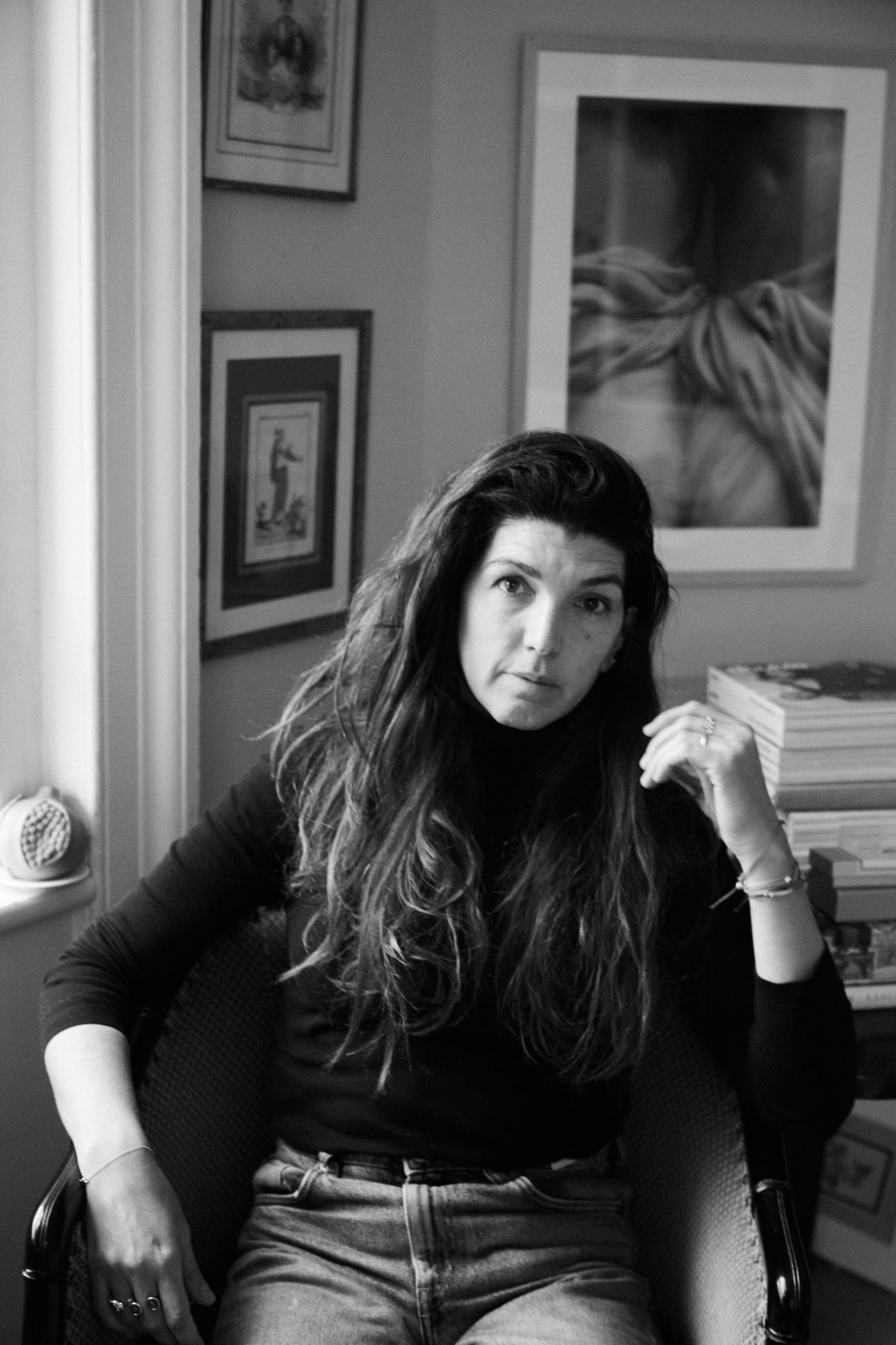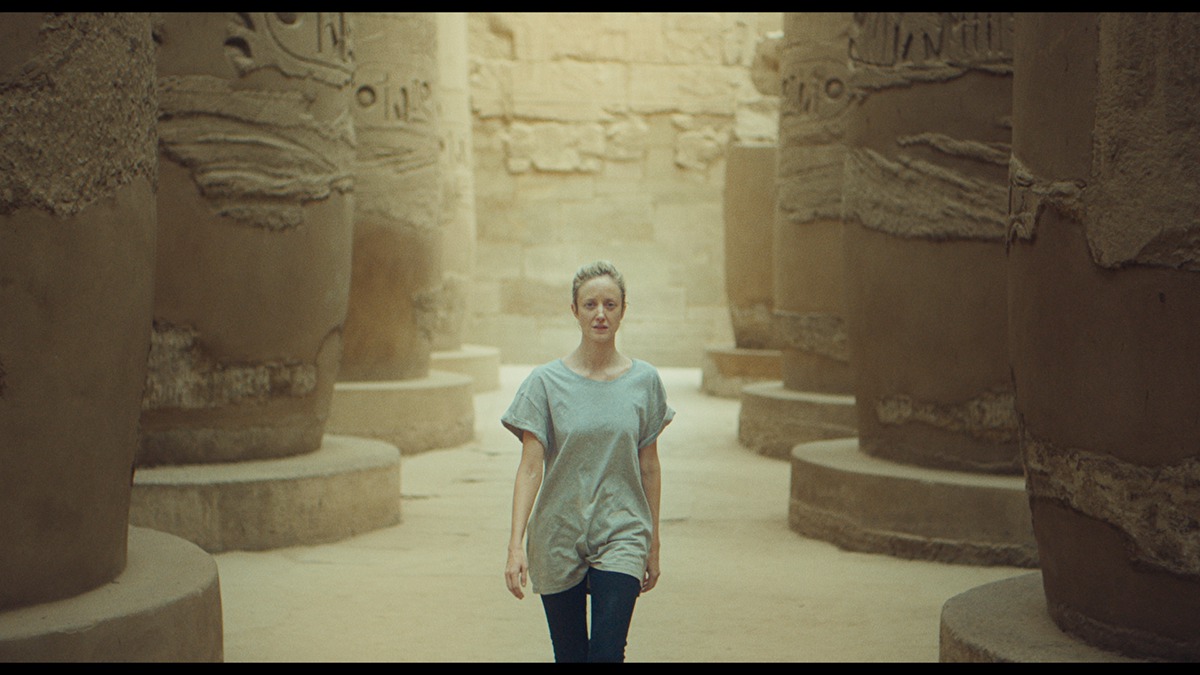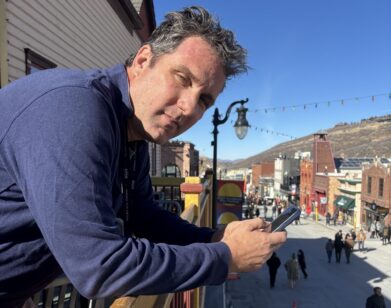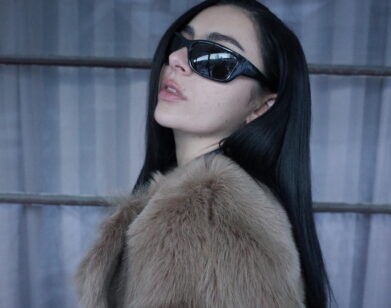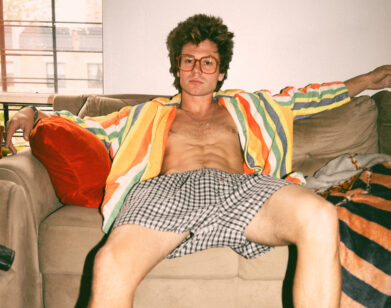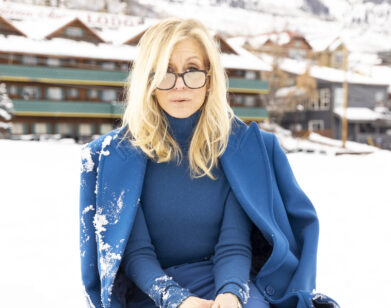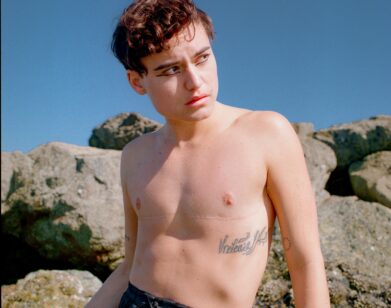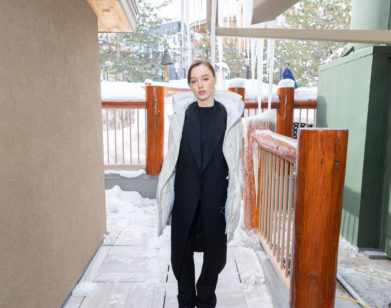in conversation
Luxor Director Zeina Durra on the Heartache of Revisiting Past Love
The London-born film director Zeina Durra, who has a Bosnian-Palestinian mother and Jordanian-Lebanese father, is a wizard of cultural intersections. I first met her in 2011 on the altar of a deconsecrated cloister with Islamic arches in Venice where the Renaissance painter Tintoretto is buried. Durra was getting married, and she wore a headdress inspired by a family bracelet made of ancient Greek, Ottoman, and Byzantine coins. The wedding itself was a Venetian twist on a traditional Persian ceremony called Aghd that included drumming and dancing. It is in this same dizzying spirit of trans-cultural communion that Durra approaches moviemaking.
Her first film, The Imperialists Are Still Alive!, which premiered at Sundance in 2010, was an ironic, provocative portrait of an Arab woman’s life in New York after 9/11. Now, a decade later, Durra has returned with her deeply atmospheric Luxor, shot in its namesake city in a rush of 18 days. Using sparse dialogue and a wealth of gorgeous, evocative images of a crumbled, sometimes solitary Nile city, the film tells the story of Hana, a traumatized war zone aid worker who returns to Egypt after years of absence, and bumps into her former archeologist lover, Sultan. The film stars Karim Saleh and Andrea Riseborough (who has just been nominated for best actress at this year’s British Independent Film Awards.) It’s the story of a woman in a state of crisis, facing that moment in life when she fears she has taken all the wrong turns. The film unfurls like a long and winding dream, and it hinges on the pang and longing for youth and the heartache of revisiting a past love, whether it’s an actual lover or a city. I asked the 44-year-old filmmaker about this highly poetic midlife crisis.
———
CHIARA BARZINI: The film first premiered at Sundance last January, which must have been the last half-way normal film festival to take place in the world.
ZEINNA DURRA:Yes. After Sundance, I went to Los Angeles and there was a drinks party in the Sunset Tower. I met a guy there who refused to shake my hand. Someone explained: “Contagion is now the number one movie, everyone’s watching it, and this man actually wrote it.” I tried to shake again, and he was like, “No, I’m not shaking people’s hands.” I was kind of offended and persisted: “So, do you really think that if I shake your hand something bad might happen?” He looked at me like, “You have no idea.” He was like that character from Hollywood movies who tries to warn everyone of a looming tragedy and nobody pays attention.
BARZINI: Luxor depicts a crossroads of crisis and longing. What were you going through in your life when you wrote it?
DURRA: I made my first film when I was living in New York. Then I moved back to London, which I didn’t want to do because I love New York and had been living there for almost 12 years. It’s always a bit strange when you come back to where you’re from. Suddenly, you find this childhood baggage, but in the meantime, you’ve become someone else. When you return home you have to reconcile those two parts. And the English society isn’t very forgiving. It’s very “judgey.” I don’t necessarily think it’s the best place for artists to flourish if you’re actually from here. There’s a massive class system that can be really debilitating. The potential for creativity is somewhat dampened by that. The minute you open your mouth everyone has their own preconceptions. So, I was at home, my babies were asleep, and I had just found out a movie I had fully cast that we thought was going to be greenlit was not greenlit because of a British institutional funding problem. Up until then, my time back had been miserable, so that was the trigger. I could feel I wouldn’t find the work I wanted to do in England.
BARZINI: You felt like you’d made the wrong choice in moving back.
DURRA: It was a moment when I was forced to really look at all the decisions I’d made in my life. Also, that very week, I had had an early pregnancy loss. My hormones were everywhere. I was just sitting there watching some sweeping romance like Out of Africa and, for some reason, my Egyptian-Italian neighbor was on my mind. She was always talking about Luxor to me. I went to bed that night and dreamt of a woman walking through the ruins of Luxor. It was just an image of her walking, but that was the spark.
BARZINI: I like that the question on your mind was whether you’d chosen the right city, and then you dreamt of a wholly different city than the one you miss. As if the solution was outside of the mental and geographical confines you had created for yourself.
DURRA: I didn’t know what the film was, but I knew I had to make it. The next day I called Zelmira [Gainza] who is a friend and cinematographer and I told her about this image and feeling. I started to unpack the emotions of the woman I had seen in the dream. By the end of the conversation, she was ready to shoot. Instinctively, I called this Egyptian producer, and he happened to be in London for the London Film Festival, and we met for a coffee. I’d written the story in a Google email to myself and had printed it out. It was one page, I gave it to him, and we talked. He said, “Well, it sounds great, I’ll make it.”
BARZINI: That sense of simplicity and spontaneity pours into the film itself, and yet it’s also filled with tension—particularly with the two former lovers. How did you find that balance on screen?
DURRA: I think it was after watching Out of Africa, I knew whatever story I wanted to tell was not going to be one about a man saving a woman. I knew it was a more feminine story about a woman’s journey. I thought about the choices I’d made in my life, in my career, and what they would have been otherwise. I constantly rework things in my mind, for different outcomes. That’s why I write movies. I basically looked back at this big span of my life in the last 20 years.
BARZINI: Which is exactly what the main character, Hana, does in the film.
DURRA: Yes, I wanted to immerse my character in a place and with a person in which she has had a past relationship. I can use their relationship to see where she’s coming from and where she’s going, so she can start to understand herself a bit better. Sometimes when there’s someone to remind you of who you were and who you are now, it can be cathartic. You understand and finally see why you made certain choices. Often when you’re down, it’s about understanding how you got there.
BARZINI: I feel like turning 40 was a bit like turning 20, in that it had that same feeling of panic and anxiety: what am I doing with myself, and is this really what I had intended? The only difference is, I don’t really have my whole life ahead of me now. I often wonder if it’s too late to change what’s on the table. These questions can end up being such a haunting spiral, like somewhere inside of you there is a person screaming that you’ve lost all your sense of fun and risk and adventure.
DURRA: Sometimes when you are older and are a parent, fun just slips away as a priority. My husband is always trying to get me to go out for dinner and I’m usually so tired and just want to sleep, but he’s like, no, we have to go out. But actually, he’s got it right, because I think the more responsibility we have and the older we get and the more we’ve experienced, the heavier we become. There’s less brain space for other stuff. Sometimes I’m just trying to function as a human being in a decent way and that’ already takes a lot of effort. In the film, I wanted the relationship between Hana and Sultan to reflect on the fun they had together when they were younger.
BARZINI: I do think that finding a way to be more light-hearted with age is a duty we all have. I admire our parent’s generation. They have an innate sense of impermanence about their philosophy of life that I don’t think we as a generation inherited. We need to know right from wrong, what side to be on, how to make everything count.
DURRA: There are no really good references for that phase between 40 and 60. The Duchess of Alba was really going for it. She was having fun at 80, but I do think this is a film about getting older. Where do we, as women, creators of children and stories, find our place in this next phase? For example, Hana’s wardrobe in the film was really important to me, because it brought up questions I find I ask myself in my own life. In the last couple of years, I’ve found myself doubting my choices. Can you wear that? That’s so short! That red leather skirt with tassels was cool in the East Village when you were 20, but now? The worst part is when I see my friends who had kids before me and realize their kids wear the same clothes as I do!
BARZINI: Acting one’s age is a challenge. I have this clear memory of being in school and my mother scoffing, “Can you believe your friend’s mom? She’s 40 and she wears a mini skirt!” Now I’m 41 and I have been known to wear miniskirts.
DURRA: My mother did the same. She used to say, “She’s mutton dressed as lamb.” There are things I am terrified of doing in front of my children or ways in which I feel like I should conduct my life so I don’t end up being a mutton dressed like a lamb. My husband though, to be fair, is like, “No, you’re more interesting now. You don’t look like a chipmunk.”
BARZINI: You never looked like a chipmunk.
DURRA: He thinks that when people are younger, everyone’s really chipmunk-y, and as they age they become more interesting. I definitely feel that with age, people take me way more seriously in meetings. Before, I was always this little hyper-enthusiastic Labrador. Nobody could correlate my work with the shiny puppy in front of them. I’ve never played that morose artist character though. I don’t have time for that. I wouldn’t want to be that kind of black beret Slavic filmmaker type. But those guys get a lot of respect. Right now, I am writing a movie about parenthood. It’s funny but heartbreaking when you look at the social construct of what being a parent is. I am trying to figure out what is actual sensible stuff that’s been passed down from generation to generation, the stuff that really makes sense. That’s what I struggle with.
BARZINI: In Luxor, Hana is about to shed her skin and enter a new stage of life. We should learn from her.
DURRA: I was lucky in this film because I was able to layer things and that is really how we live. We don’t know the answers and we’re just navigating. The beauty of film is that you don’t have to say everything, it’s more about the way you layer things, the way you juxtapose, what you show. They always make you reduce everything nowadays. Like, what’s the point of this scene, why is it in there? Sometimes you can’t explain what the point is, but you can feel it.

